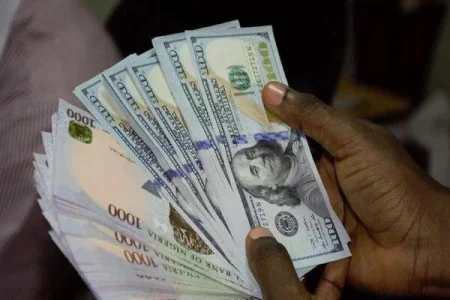
In a tumultuous week for Nigeria's economy, the national currency, the Naira, experienced unprecedented depreciation, closing at N1,537.96 at the official market on Friday. This marks a significant milestone, as the currency surpassed the N1,500 threshold, showcasing the severity of its recent struggles in the foreign exchange market.
Throughout the week, the exchange rate fluctuated between N1,500 and N1,515/$, briefly strengthening on Thursday to close at 1,499 at the Nigeria Autonomous Foreign Exchange Market (NAFEM). However, any momentary relief was short-lived, as the Naira resumed its downward trend, closing the week at N1,537.
This decline occurred on a day when the Central Bank of Nigeria (CBN) took decisive actions to stabilize the foreign exchange market. Issuing a series of circulars on February 14, the CBN implemented measures to address the challenges faced by the Naira. Among these measures, the apex bank set a limit on foreign currency transfers from crude export proceeds by international oil companies to their parent firms. The circular specified that banks could initially transfer a maximum of 50% of crude export proceeds to oil companies abroad.
In addition, another circular was issued, putting a halt to the payment of cash for basic travel allowance (BTA) and Personal Travel Allowance (PTA). These measures were designed to curb excessive outflows of foreign exchange and foster stability in the forex market.
Despite these interventions, the Naira exhibited remarkable defiance, losing N40 in value against the US Dollar by the end of the week. Notably, the British pound also entered the fray, exchanging for N1912.4400 at the official market.
This development has raised concerns among experts and economists, who are now closely monitoring the impact of the CBN's measures on the Naira's future trajectory. The resilience displayed by the local currency in the face of regulatory interventions underscores the complex challenges the Nigerian economy is currently grappling with.
As citizens navigate these economic uncertainties, the story of the Naira's struggle serves as a testament to the intricate interplay between global economic forces, central bank policies, and the resilience of a nation's currency.




